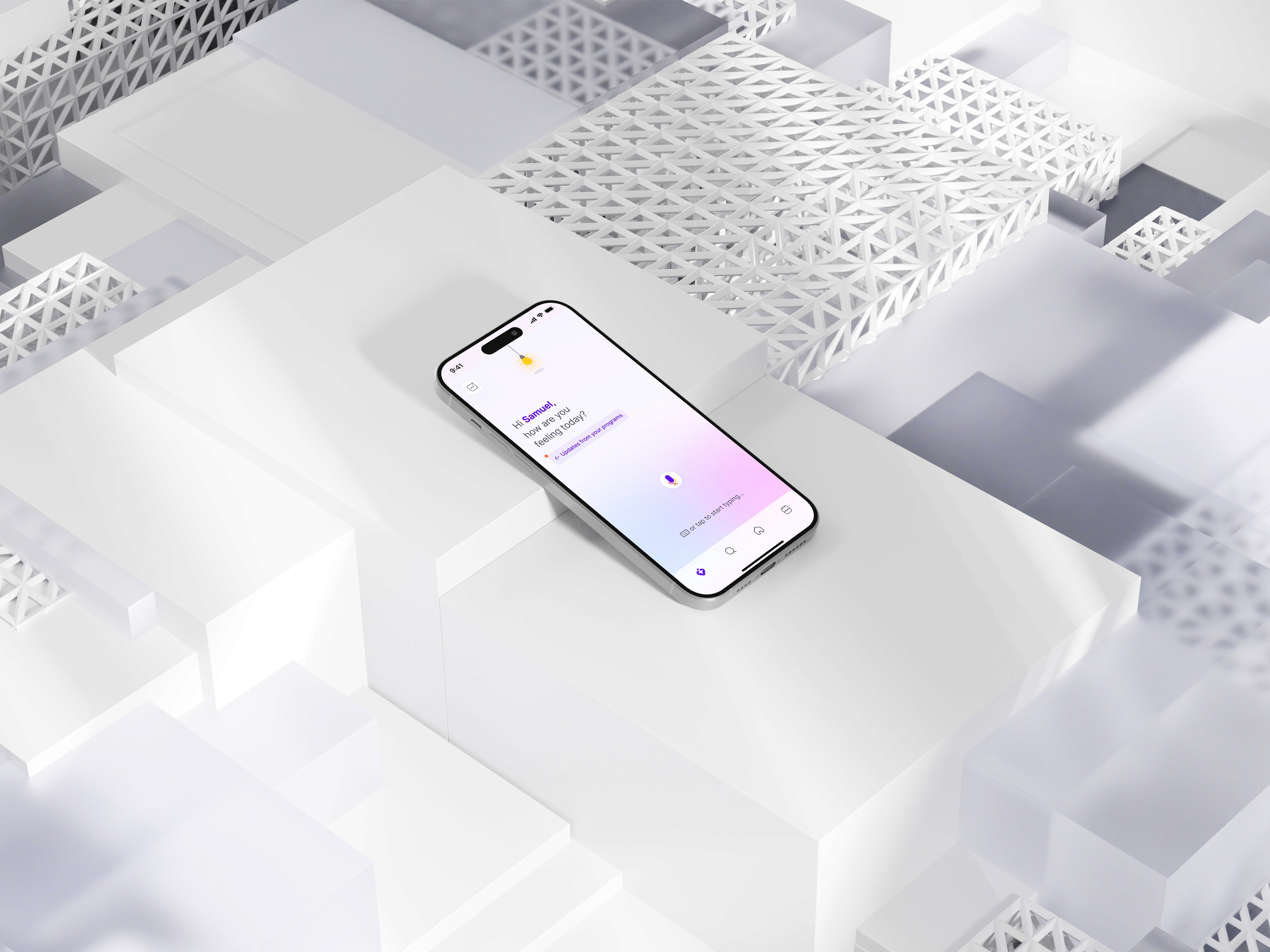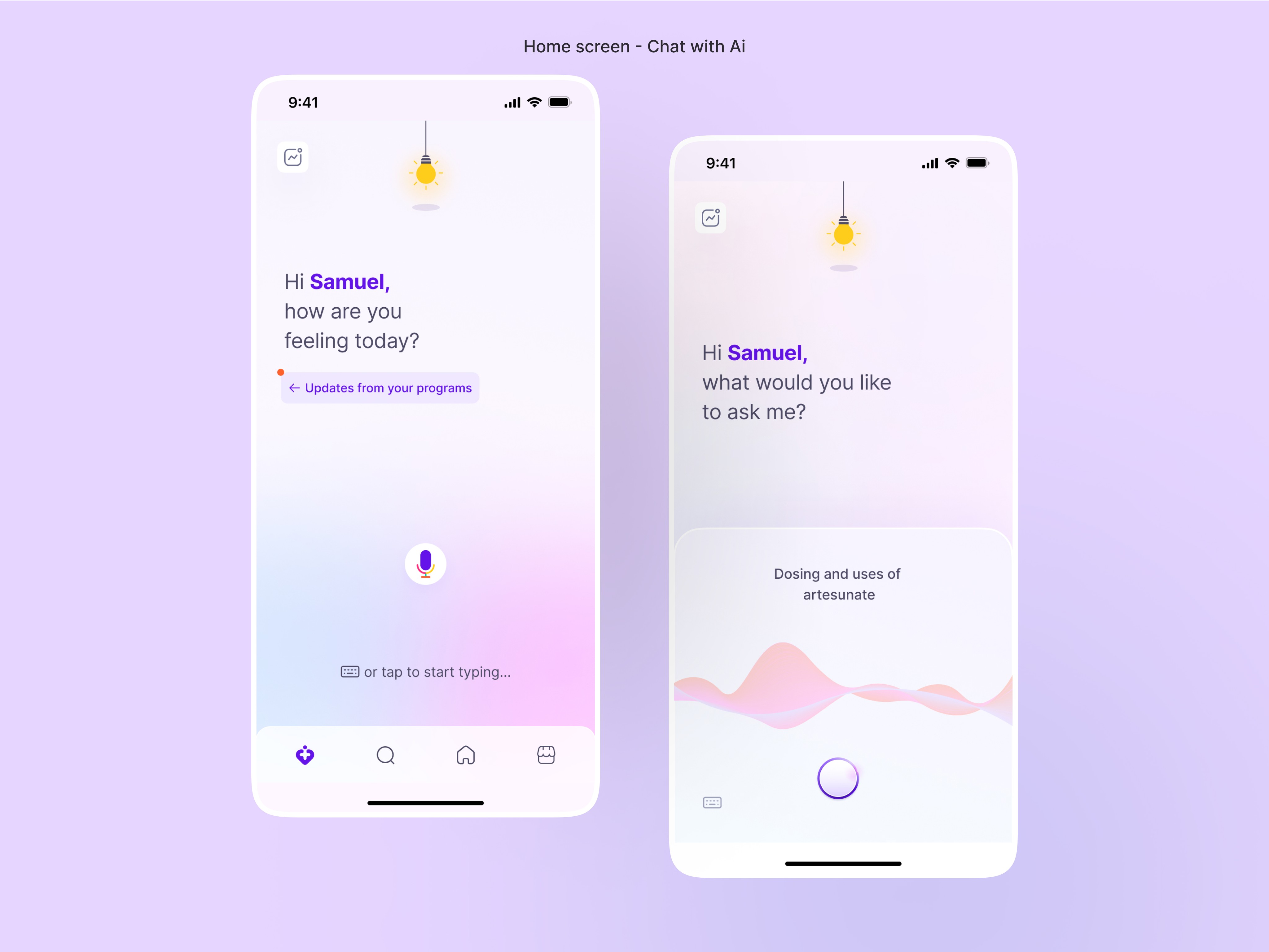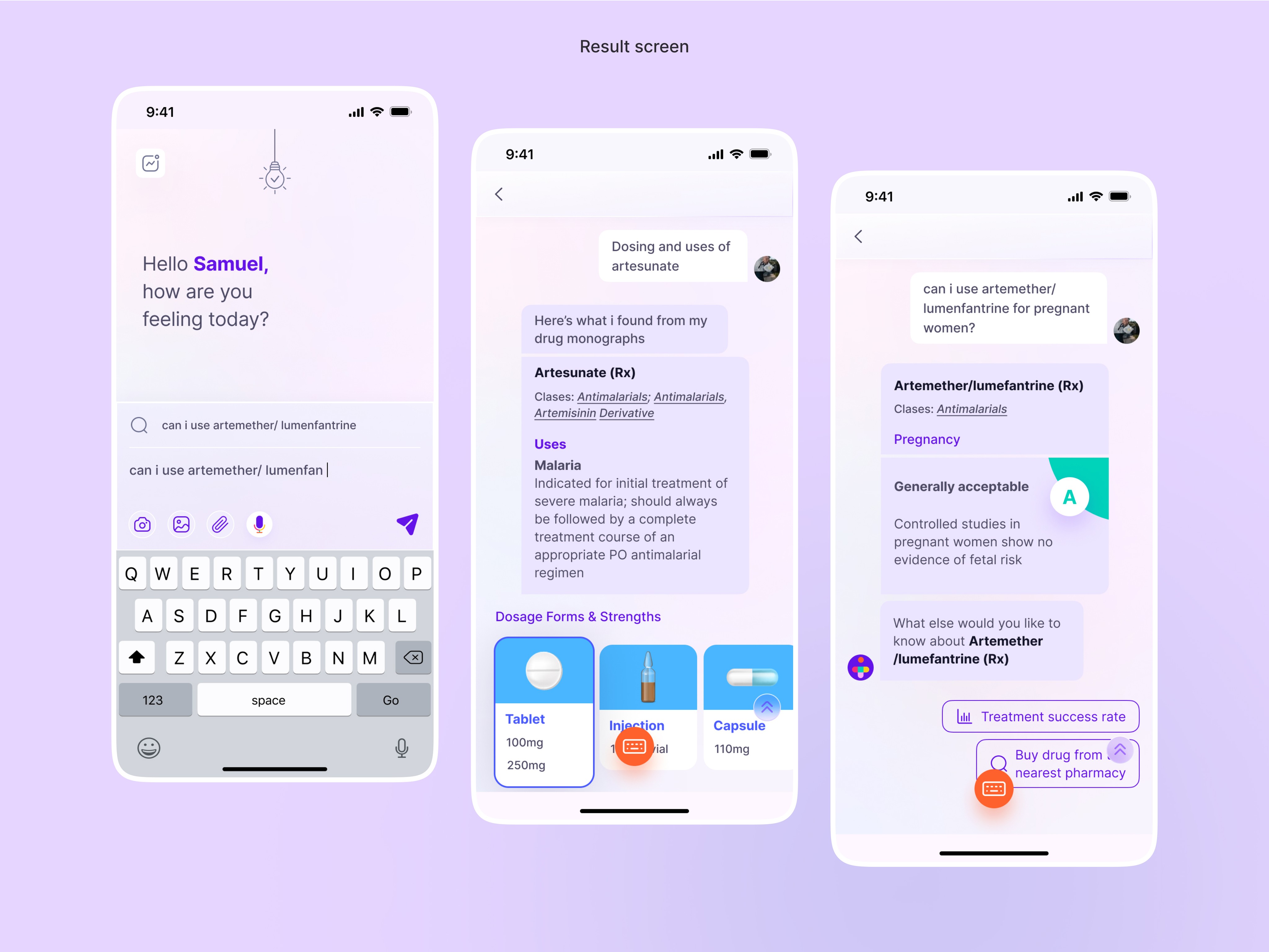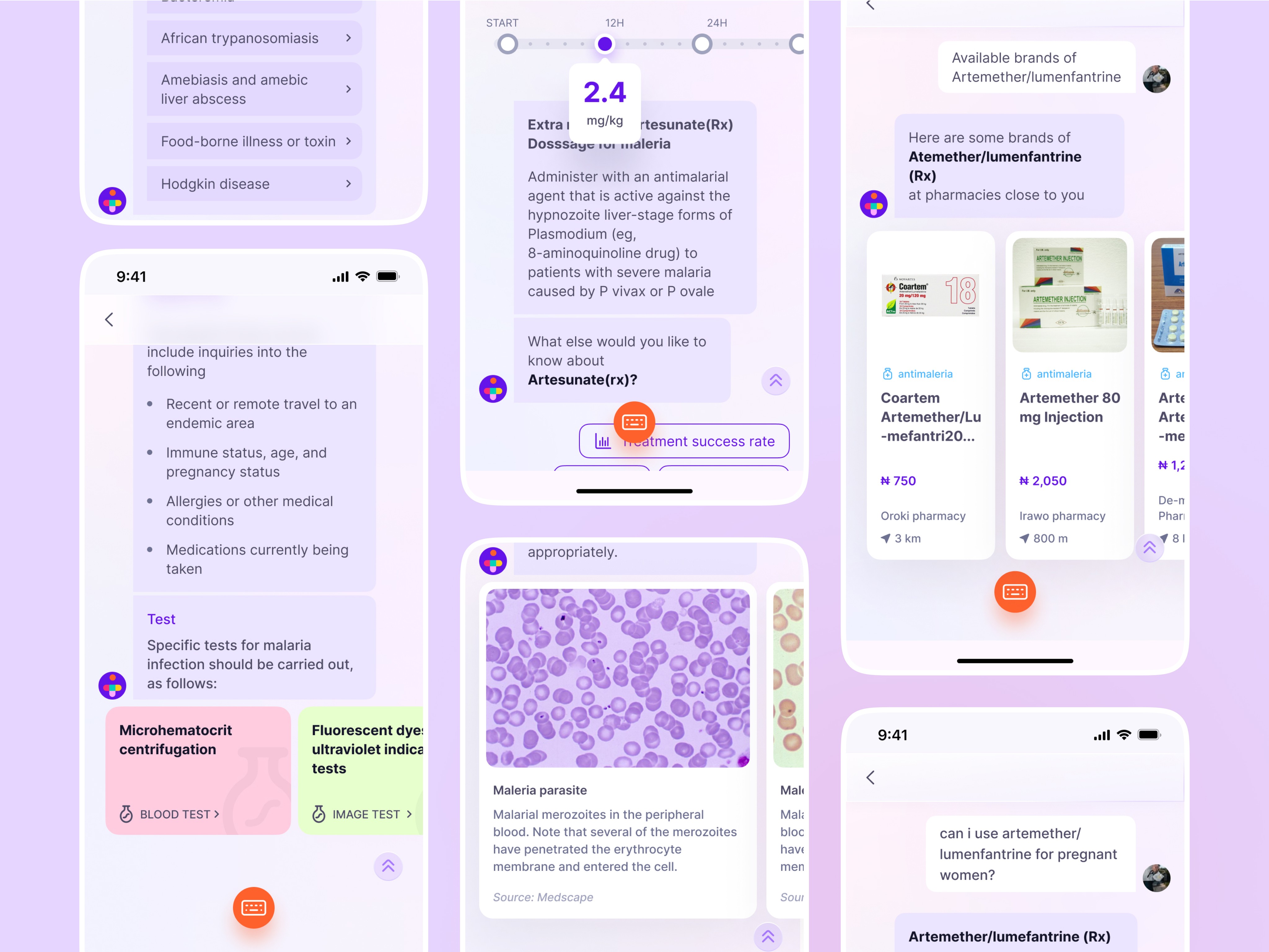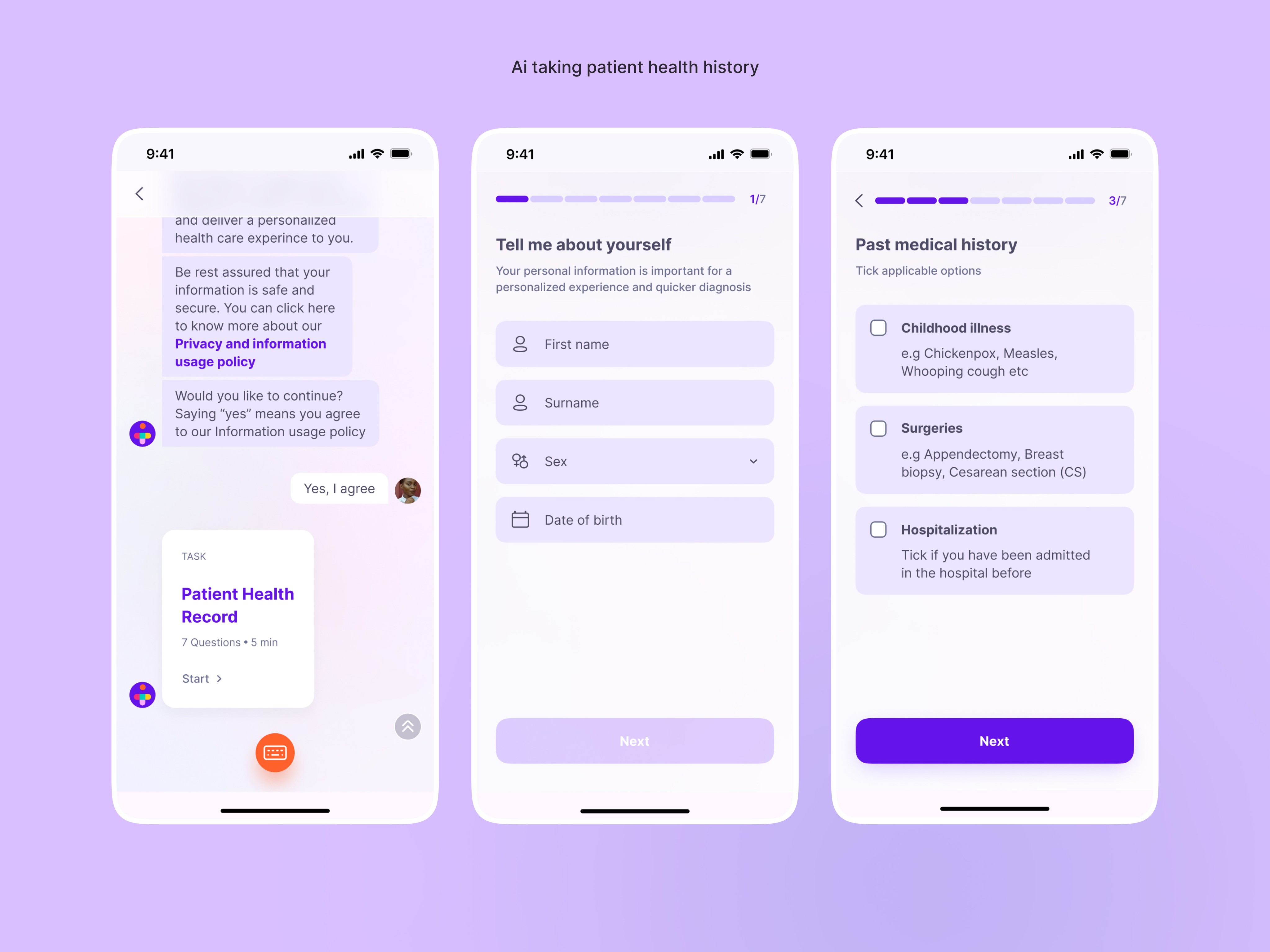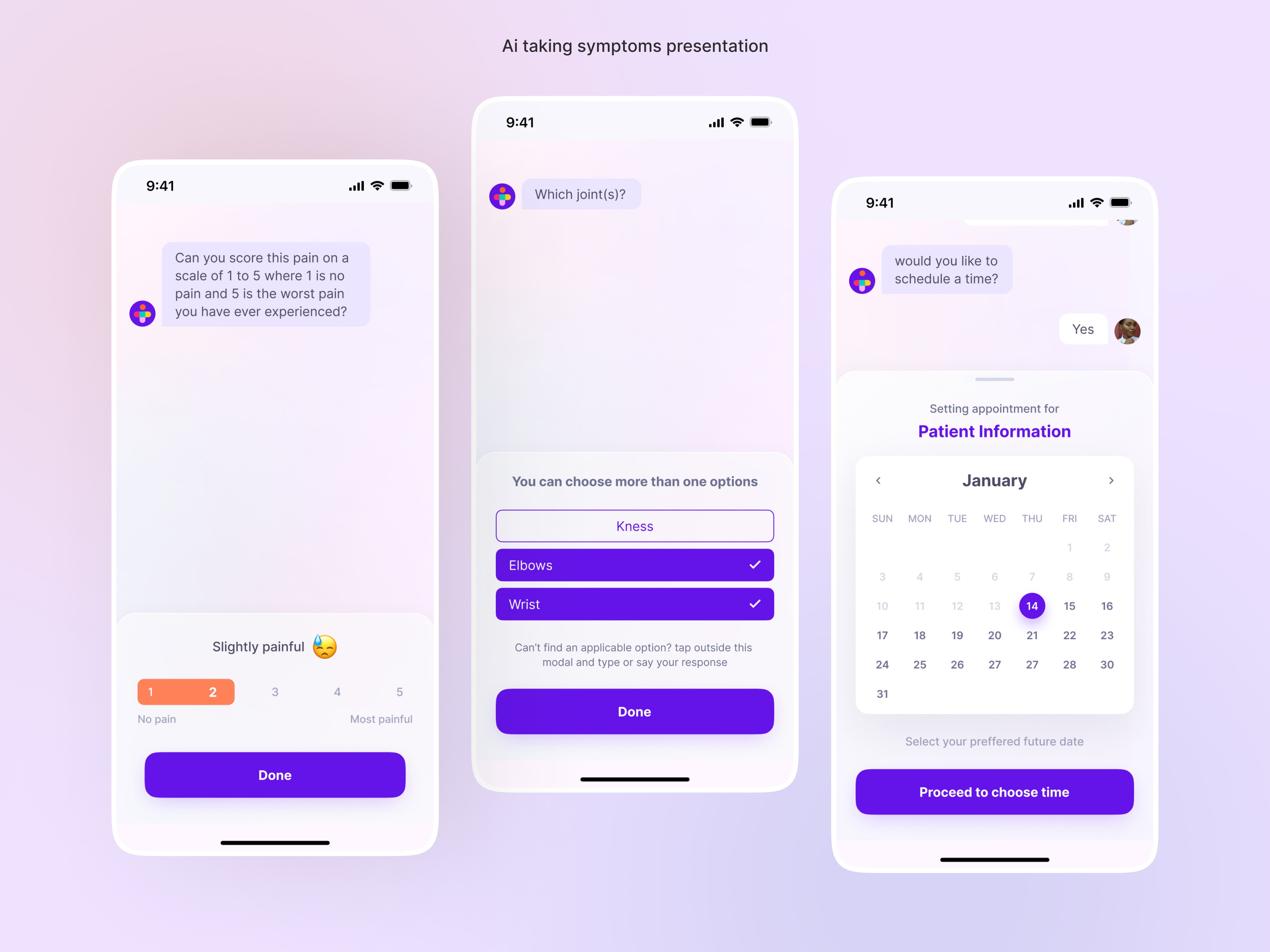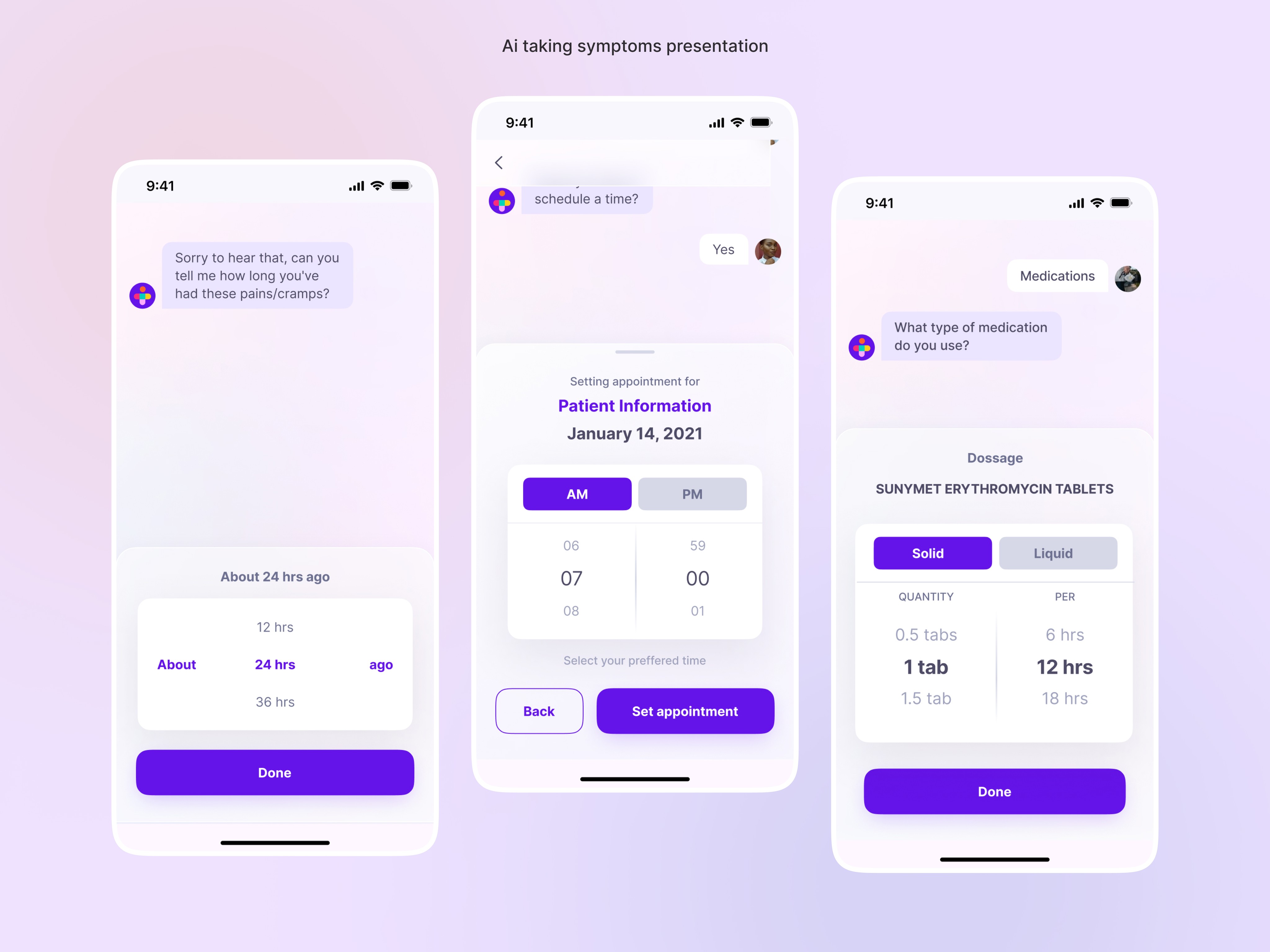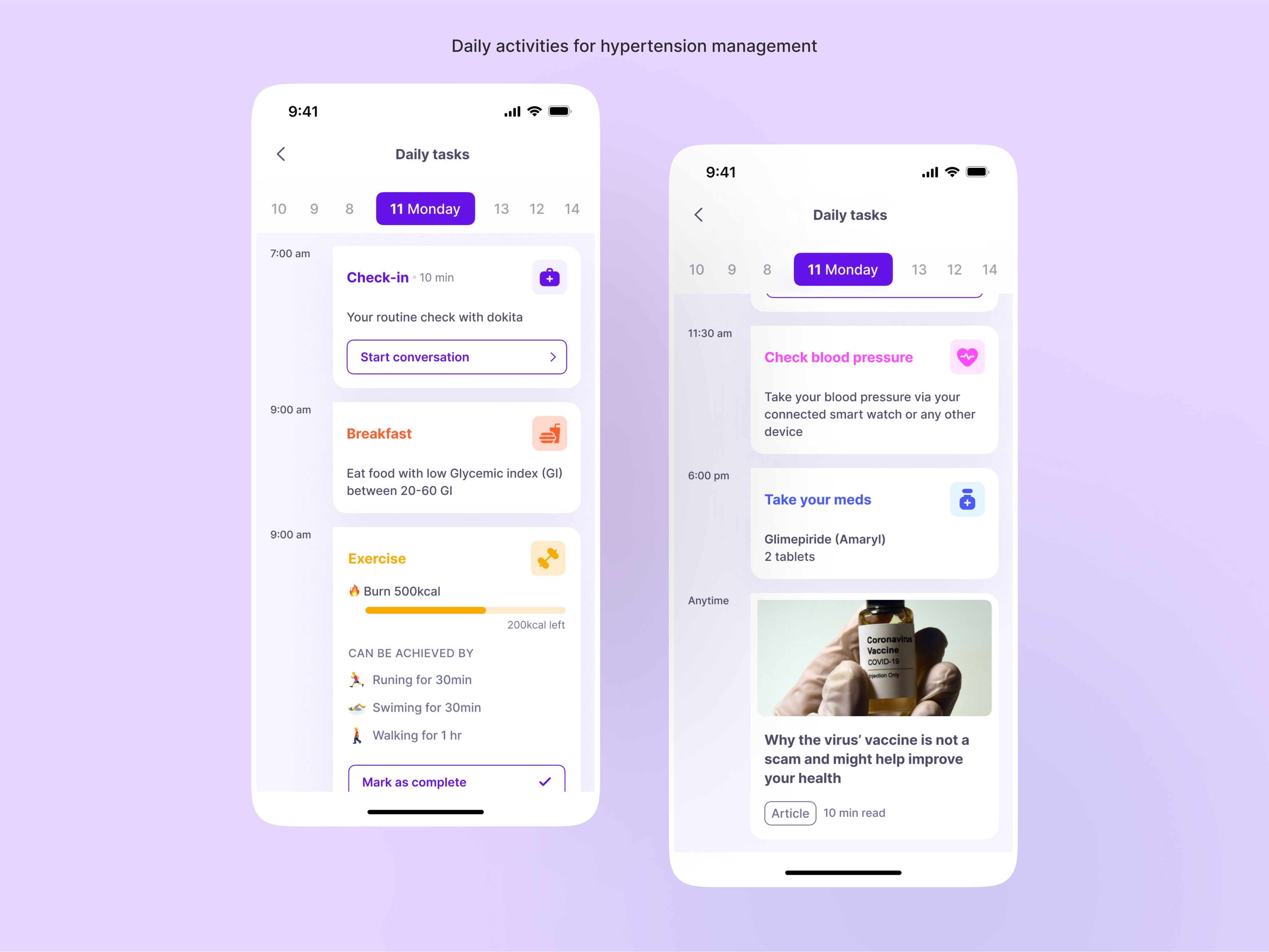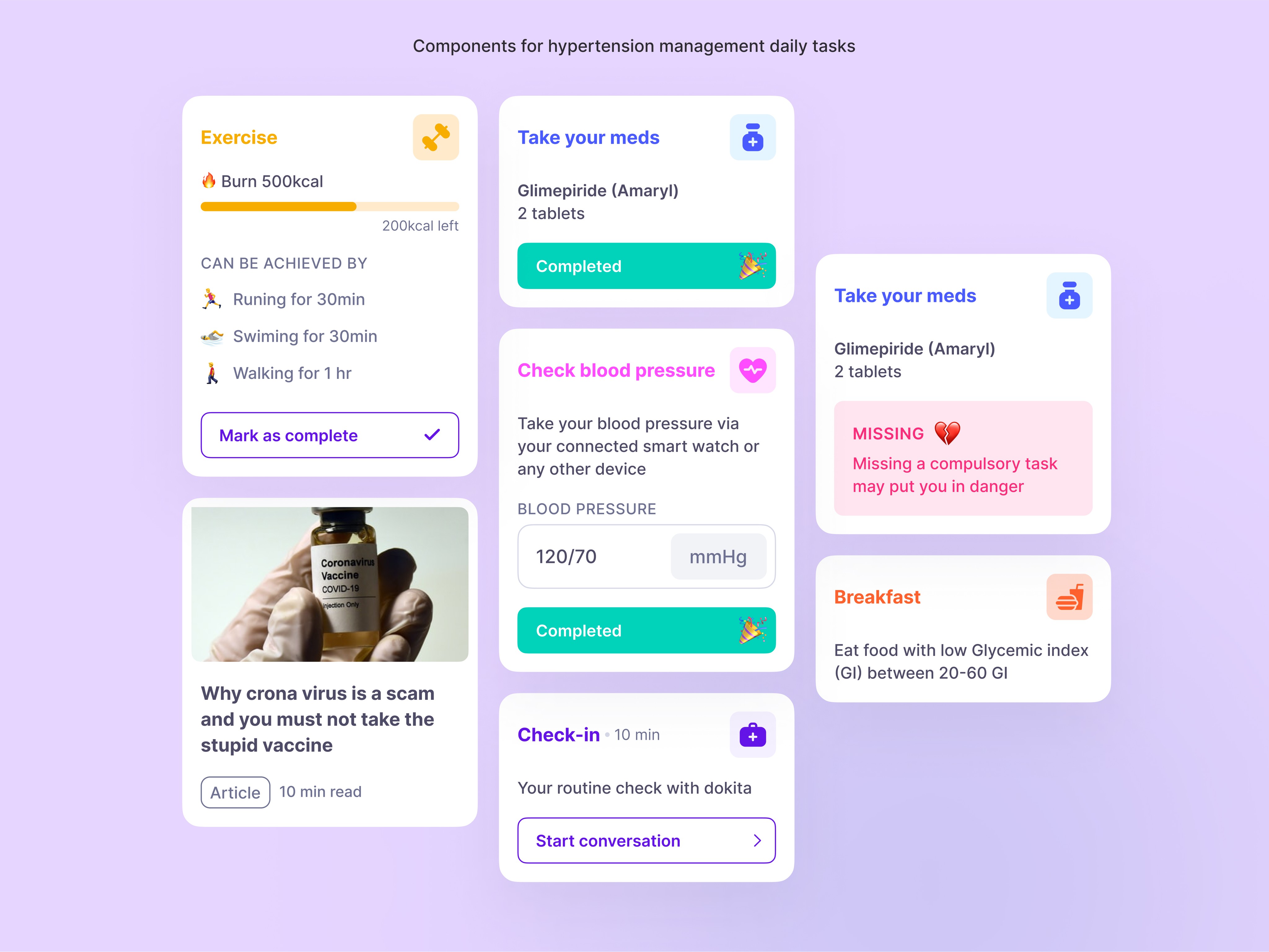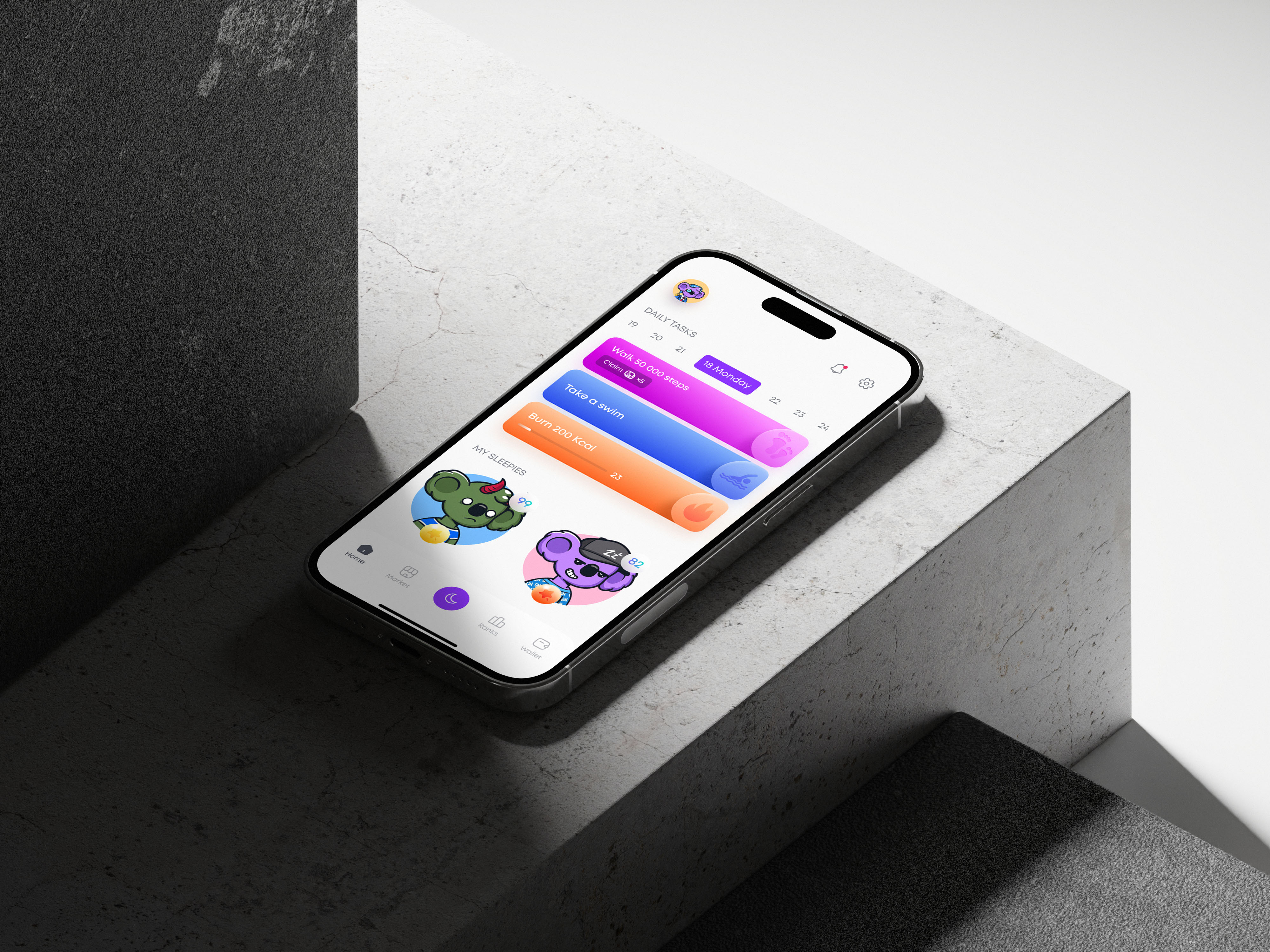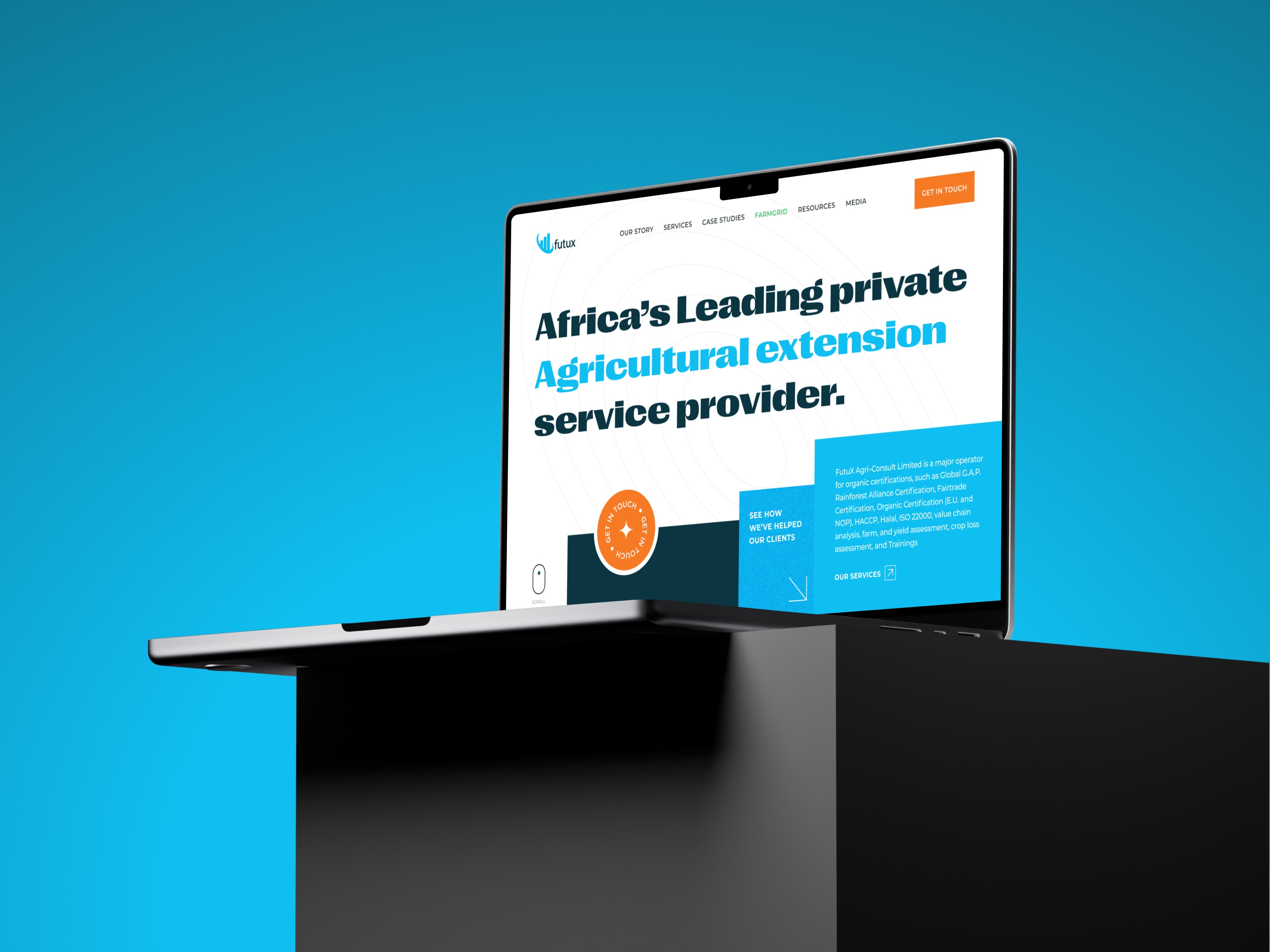Building the world's smartest medical assistant
"It's like having a knowledgeable healthcare companion right in your pocket, ready to provide personalized guidance whenever you need it"
"I translated these concepts into a tangible product – an iOS and Android application. Collaborated closely with the core team, conducting user research to inform product discovery, sustainability, and monetization strategies. This encompassed crafting a robust business model, outlining the product roadmap, and ultimately designing the entire app's UI from scratch."
Due to unique app outcomes, creativity was crucial. It began with deep user interviews for insights.
I delved into real cases where symptom Googling had led to harm, ensuring that our app addressed these pitfalls effectively.
Working closely with our in-house medical team, I established high-level algorithms (user flows) to efficiently gather user health information for the AI to generate personalized advice.
Information architecture played a key role in categorizing the various types of questions and answers that could arise during AI-human interactions.
I designed UI components capable of accommodating diverse result formats, including text, images, drug information, audio, video, and more.
To ensure a seamless user experience, I crafted sample user flows for various question scenarios, adhering to best practices for AI design
Finally, I provided the development team with meticulously structured design components and guidelines to bring our vision to life.
Key design decisions
User-Friendly Aesthetics: Employed curved edges, pastel colors, and smooth design language for improved user-friendliness, in contrast to typical medical reference websites.
Clear Information Hierarchy: Utilized stacked information with a clear hierarchy and generous white spaces to enhance readability and content scalability.
Conversational UI: Opted for a chat and conversational user interface style over humanoid illustrations, avoiding the humanization of AI. This decision was validated when ChatGPT, the world's leading AI, adopted a similar chat style for AI-human communication two years later.
Results
Dokita transformed into a streamlined web platform for both patients and medical professionals, allowing them to harness the power of AI for improved medical decisions and error prevention. In this evolution, they launched a closed beta testing phase to refine the platform and ensure its readiness for further development. To support their vision and continued growth, they initiated a $5 million seed funding round, enabling them to enhance the platform and collect valuable local health data from across Africa for model training.
